Saul’s sermon in the synagogue of Antioch
We must leave behind us any notion that Paul’s exhortation to the Jews in Antioch Pisidia would have much effect by proclaiming the Gospel as Paul had to the Roman ruler Sergius Paulos in Paphos Cypress or to the faithful ‘Christians’ of the church at Antioch in Syria. And Saul’s sermon most certainly would not have been identical to those preached to the well-heeled Jews of Jerusalem of Judea governed by Roman Syria where Saul was educated.
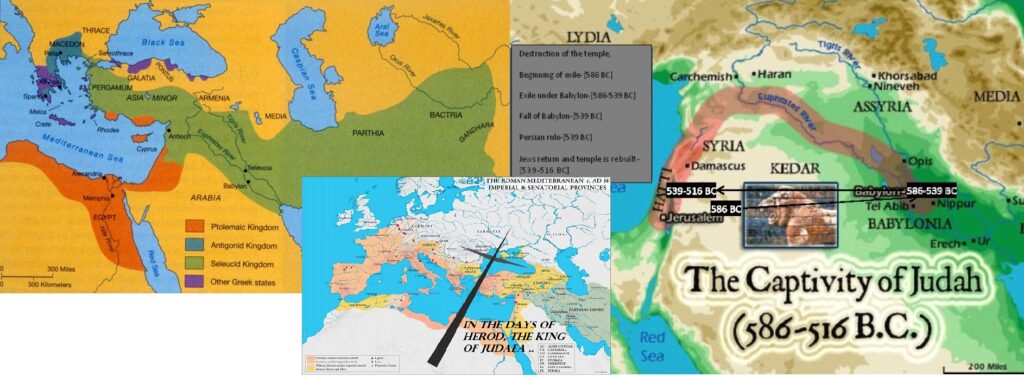
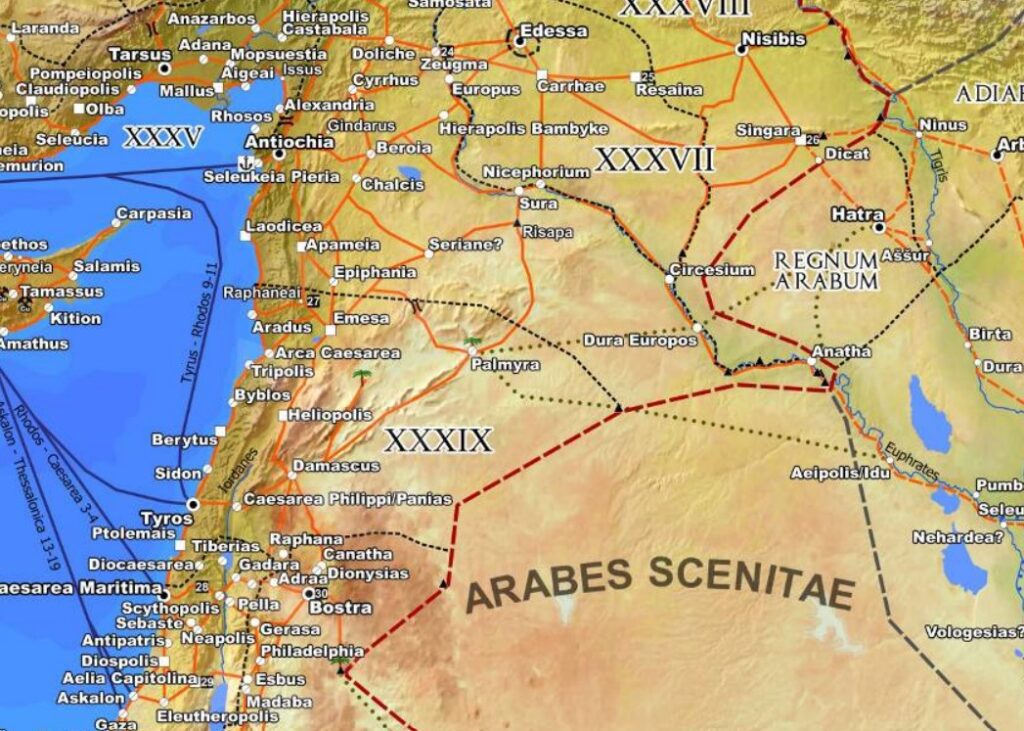
The Jews here in Antioch Pisidia for the most part are Hellenist (Greek) Jews distinctly different from the more orthodox Jews returned to Judea from captivity centuries ago from the eastern empires along the Euphrates.
Saulos Tarseus is a Roman citizen, born not to far across the Tarsus mountains in the Roman capitol of Cilicia along the Mediterranean coast. But this ‘Jew of Jews, Sha’ul [שָׁאוּל] of Ταρσεύς [Gk. Tarseus or Latin Tarsus] knows his listeners.
Saul’s Sermon:
Exhortation for their Jewish Brothers
Sha’ul stood up, and beckoning with his hand said,
“Men of Yisra’el, and you who fear God, listen.
It is a Jewish history from Jewish Scripture, an encouragement for a congregation of Hellenist Jews which Luke's account in Acts of the Apostles outlines in Saul's sermon which follows their traditional Scriptural readings. In order to give us first century Jewish 'ears to hear' I will share Scripture from the Hebrew Names Version of the Bible translated from Paul's original native Greek.
Acts of the Apostles 13: Saul’s Sermon in the synagogue
17 The God of this people chose our fathers, and exalted the people when they stayed as aliens in the land of Mitzrayim [Egypt], and with an uplifted arm, he led them out of it. For period of about forty years he put up with them in the wilderness.
When he had destroyed seven nations in the land of Kana`an (Canaan), he gave them their land for an inheritance, for about four hundred fifty years. After these things he gave them judges until Shemu’el [Samuel] the prophet.
Afterward they asked for a king, and God gave to them Sha’ul [Saul] the son of Kish, a man of the tribe of Binyamin [Benjamin], for forty years. When he had removed him, he raised up David to be their king, to whom he also testified,
‘I have found David the son of Yishai [Jesse] , a man after my heart, who will do all my will.’
Acts of the Apostles 13:22b Hebrew Names Version
- Where does Saul’s sermon begin?
- AFTER the reading of the Law and the Prophets, Paul begins from Jewish Scripture.
- It is a shared Biblical history beginning with:
- The God [theos] of this people..
- pointing to their captivity in Egypt (relating to the Pentateuch just read).
- Saul then points back to previous disobedience of God’s chosen people the LORD led out of Egypt, perhaps even specifically using a passage from the reading of the Law.
The children of Yisra’el ate the manna forty years, until they came to an inhabited land. They ate the manna until they came to the borders of the land of Kana`an.
Exodus 16:35 HNV
Is it good encouragement [exhortation] to point us to Scripture critical of behaviors and acts of previous generations against God?
AND could these things that happened historically hundreds of years ago speak to our need to ACT now as followers or seekers of God’s will?
Of course. Rome now ruled Antioch Pisidia and Galatia, Cilicia and even Egypt. AND as you are aware Rome ruled Judea which technically was no longer a kingdom of even a puppet King like the Herod's. So is the preaching of Saul's sermon to Jews in the Hellenist world of Paul's journeys of interest to Luke's gentile readers? More importantly is it personally relevant?
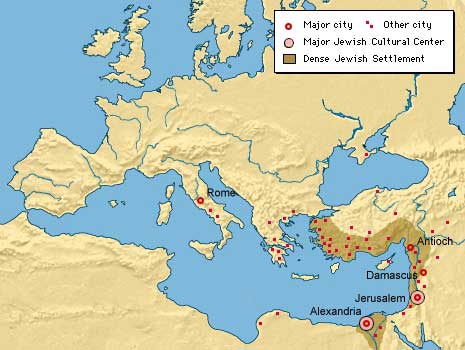
This is NOT how Paul would preach later to those who had NO idea of what God has said through the Holy Scriptures just read in the synagogue.
And he [Jesus] said to them, “Go into all the world and proclaim the gospel to the whole creation.
Gospel of Mark 16:15 English Standard Version
ACTS of the Apostles will be published by Luke (as I have pointed out previously) around A.D. 62 about fifteen years after these sermons when persecutions of Jews and Christians has increased considerably.
Most gentiles know little of this history of Jewish Kings like David or Judges or Prophets and especially not anything about the many sins of God’s ‘chosen people.’ BUT they will come to suffer persecution for their new-found faith in the time since Paul’s sermon to the Jews.
“But you, be on your guard! They will hand you over to local courts, and you will be flogged in the synagogues. You will stand before governors and kings because of me, as a witness to them.
“And it is necessary that the gospel be preached to all nations.
the Good News of (John) Mark (cousin of Barnabas) 13:9-10 CSB + a prophesy of the Lord Jesus Christ
- Paul’s sermon then proceeds to the Prophet Samuel.
“Look, the days are coming when I will cut off your strength and the strength of your forefather’s house, so that none in your family will reach old age. You will see distress in the place of worship, in spite of all that is good in Israel, and no one in your family will ever again reach old age.
1 Samuel 2:31-32 CSB
וַיֹּאמֶר יְהוָה אֶל־שְׁמוּאֵל עַד־מָתַי אַתָּה מִתְאַבֵּל אֶל־שָׁאוּל וַאֲנִי מְאַסְתִּיו מִמְּלֹךְ עַל־יִשְׂרָאֵל מַלֵּא קַרְנְךָ שֶׁמֶן וְלֵךְ אֶשְׁלָחֲךָ אֶל־יִשַׁי בֵּית־הַלַּחְמִי כִּי־רָאִיתִי בְּבָנָיו לִי מֶלֶךְ׃
Then Yahweh said to Samuel, “How long will you be grieving over Saul? I have rejected him from being king over Israel. Fill your horn with oil and go; I will send you to Jesse the Bethlehemite, for I see among his sons a king for Me.”
1 Samuel 16:1 LSB [WLC above]
Saul’s Sermon connects the Kings of Israel to their Messiah
Worshipers in the synagogue honored King David, though the kingdom had been destroyed. Israel and the Judeans had returned from centuries of captivity warned by the Prophets. And first century Judeans sang the Davidic Psalms as part of their worship.
.. ‘I have found David the son of Yishai, a man after my heart, who will do all my will.’
23 From this man’s seed, God has brought salvation to Yisra’el according to his promise, before his coming, when Yochanan [John] had first preached the immersion [βάπτισμα baptisma of repentance to Yisra’el.
As Yochanan was fulfilling his course, he said,
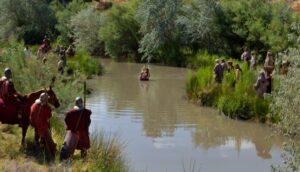
‘What do you suppose that I am? I am not he.
But behold, one comes after me the sandals of whose feet I am not worthy to untie.’
- John the Baptist, who preached a baptism (cleansing) of repentance, a permanent change of a heart (soul) returning to God, was thought to be a Prophet by first century Jews. AND many had heard of John.
Saul’s sermon then turns to explanation of the Jewish Messiah to his brothers, fellow Jews who had invited him to provide an exhortation. Paul will proceed to proclaim how the Gospel of Jesus Christ applies directly to these Jewish worshipers in a synagogue in their Roman capitol of Galatia, Antioch Pisidia.
To be continued…
Comment on Scripture – Share the Gospel
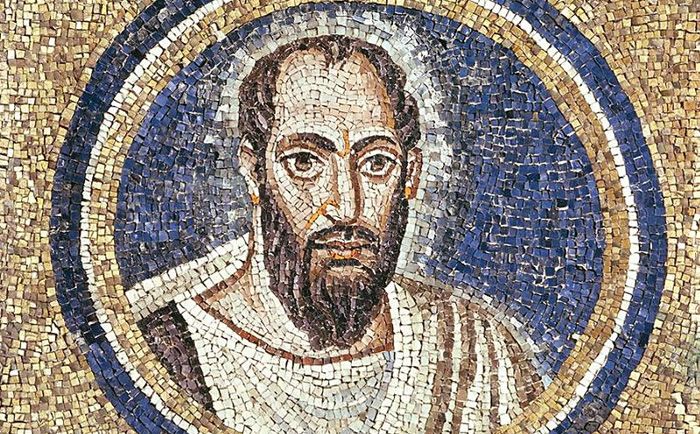

Leave a Reply